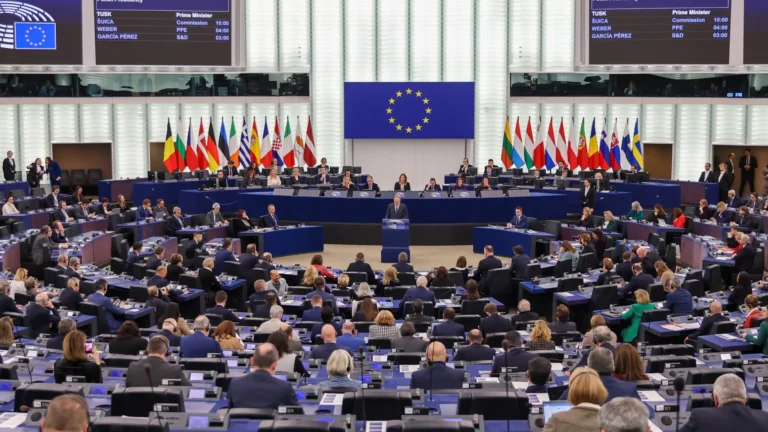In February 2025, U.S. President Donald Trump announced a possible 25% tariff on goods imported from the European Union, aiming to reduce the U.S. trade deficit and bolster domestic industries. This move has significant implications for the French economy, given the strong trade ties between France and the United States.

(President Donald Trump signing Executive Orders in his Office)
Key French Sectors at Risk
The United States stands as France’s fourth-largest customer and fifth-largest supplier, making the French economy particularly susceptible to these tariffs. Several key sectors are poised to feel the impact:
- Wines and Spirits: Valued at €3.9 billion in annual exports, the French spirits industry is bracing for substantial challenges. A previous tariff war between 2019 and 2021 led to a 40% plunge in exports and a net loss of €500 million, underscoring the sector’s vulnerability.
- Pharmaceuticals: As the second-largest category of French exports to the U.S., the pharmaceutical industry could face significant hurdles. Tariffs may compel French pharmaceutical firms to consider shifting production elsewhere to mitigate losses.
- Aeronautics: This sector, integral to French exports, could experience disruptions, affecting both revenue and employment within the industry.

(Emmanuel Macron meeting with President Donald Trump and others in Washington D.C)
Potential EU Retaliation and Its Implications
The European Union has signaled readiness to retaliate against the U.S. tariffs. However, economists caution that such measures could backfire, potentially penalizing European consumers. Christophe Blot, an economist at the OFCE, remarked, “If we do the same as Trump, we’re going to penalize French consumers. It’s not necessarily an ideal situation—it’s a game where everyone loses.”
In past disputes, the EU imposed tariffs on iconic American products, including motorcycles, jeans, bourbon, and orange juice. A similar approach might be adopted in response to the current situation. Additionally, the EU could consider leveraging its energy imports, such as hydrocarbons worth €12.2 billion in 2023, to ease tariff pressures.
Impact on Some Other Big Economies
While France stands to face significant challenges, other European nations like Germany and Italy, which maintain substantial trade surpluses with the U.S., could be even more affected. Estimates suggest that a 10% tariff hike could reduce economic output in Germany by approximately 0.5%, in Italy by 0.4%, and in France by 0.3%.


